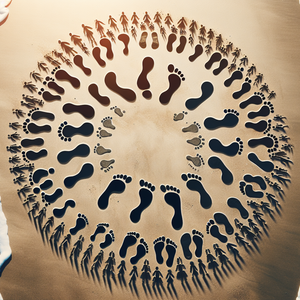Breaking Taboos: The Hidden World of Urology

Urologists are medical specialists who diagnose and treat conditions related to the urinary tract and male reproductive system. Their expertise covers a wide range of conditions, from kidney stones, urinary tract infections, and bladder issues to male infertility and prostate cancer. Despite the vital role they play in healthcare, their work often involves navigating socially sensitive subjects. Erectile dysfunction (ED), for instance, affects approximately 30 million men in the United States alone, yet it remains a topic fraught with stigma. Similarly, urinary incontinence affects millions, both men and women, but is often relegated to whispers behind closed doors.
Addressing Erectile Dysfunction
Erectile dysfunction is a common issue that can stem from various physical and psychological factors, including heart disease, diabetes, stress, and anxiety. Urologists approach ED by first normalizing the conversation. They emphasize that ED is a medical condition, not a personal failing, and encourage patients to view it as such. By providing comprehensive education and a range of treatment options—from medication like Viagra to therapy and lifestyle changes—urologists empower patients to take control of their sexual health. For example, a study published in the Journal of Sexual Medicine found that addressing lifestyle factors such as exercise and diet can significantly improve ED symptoms, highlighting the comprehensive approach urologists take.
Confronting Urinary Incontinence
Urinary incontinence, or the involuntary leakage of urine, is another condition that urologists frequently address. It can result from multiple causes, such as childbirth, aging, or prostate issues. Urologists adopt a compassionate approach, recognizing the emotional impact of this condition. They work to dispel myths and reduce the shame associated with incontinence by offering treatments ranging from pelvic floor exercises to surgical interventions. Research published in the Journal of Urology indicates that pelvic floor exercises can lead to significant improvements in incontinence symptoms, underscoring the effectiveness of non-invasive treatments. By focusing on improving patient outcomes and quality of life, urologists help individuals regain confidence and independence.
Destigmatizing Through Education and Advocacy
Education and advocacy are crucial components in the battle against urological taboos. Urologists often engage in public speaking, write articles, and participate in community health fairs to raise awareness about urological health. By fostering an open dialogue, they aim to encourage individuals to seek medical advice without fear of judgment. Furthermore, many urology clinics have adopted a patient-centered approach, ensuring that consultations are conducted in a supportive and understanding environment. Initiatives like the Urology Care Foundation's public awareness campaigns have been instrumental in normalizing conversations around urological health, demonstrating the impact of dedicated advocacy.
The hidden world of urology is one that deserves more attention and understanding. By breaking down taboos and addressing sensitive topics head-on, urologists play a crucial role in improving their patients' lives. Through education, compassion, and innovative treatments, they empower individuals to confront conditions like erectile dysfunction and urinary incontinence without shame. As society becomes more open to discussing these issues, the stigma surrounding urological health will continue to diminish, paving the way for a healthier, more informed public. Urologists, with their dedication and expertise, are leading the charge in this important movement towards normalization and acceptance. By expanding awareness and dialogue, they ensure that individuals receive the care and support they need, ultimately enhancing the overall quality of life for countless people.
Urology Nurse Practitioner
Hospitals, urological clinics, and private practices
Responsibilities
Provide specialized care and treatment for patients with urological conditions, including erectile dysfunction and urinary incontinence.
Conduct patient assessments and develop personalized care plans, focusing on improving patient outcomes and quality of life.
Collaborate with urologists to monitor patient progress and adjust treatments as necessary.
Required Skills
Advanced clinical skills in urology and patient management.
Strong communication and empathetic approach to discussing sensitive health issues.
Medical Writer (Urology Focus)
Health publications, pharmaceutical companies, and medical associations
Responsibilities
Develop educational materials and articles on urological health to raise public awareness and destigmatize common issues.
Collaborate with medical professionals to ensure accuracy and clarity in writing.
Engage in public health campaigns and advocacy initiatives.
Required Skills
Strong writing and research abilities with a focus on medical topics.
Ability to translate complex medical information into accessible content.
Clinical Research Coordinator (Urology)
Research hospitals, academic institutions, and pharmaceutical companies
Responsibilities
Oversee clinical trials focused on urological treatments and interventions.
Ensure compliance with regulatory standards and maintain detailed records of trial progress.
Recruit and manage study participants, ensuring ethical standards are upheld.
Required Skills
Strong organizational skills and attention to detail.
Experience in clinical trial management and regulatory compliance.
Pelvic Floor Physical Therapist
Physical therapy clinics, hospitals, and rehabilitation centers
Responsibilities
Design and implement therapy programs to strengthen pelvic floor muscles, addressing conditions such as urinary incontinence.
Educate patients on exercises and lifestyle modifications to improve their symptoms.
Collaborate with urologists and other healthcare professionals to provide comprehensive care.
Required Skills
Specialized knowledge of pelvic floor dysfunction and therapeutic interventions.
Ability to communicate effectively and sensitively with patients.
Urological Sales Specialist
Medical device companies and pharmaceutical firms
Responsibilities
Promote and sell urological products and devices to healthcare providers.
Provide product education and training to medical professionals, supporting the adoption of innovative treatments.
Develop and maintain relationships with key stakeholders in the healthcare industry.
Required Skills
Strong sales and negotiation skills with a technical understanding of urological products.
Ability to communicate complex product information clearly to diverse audiences.


